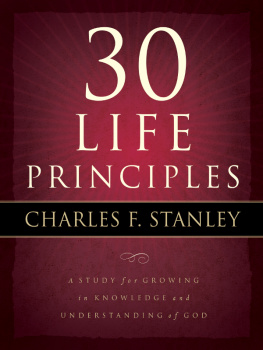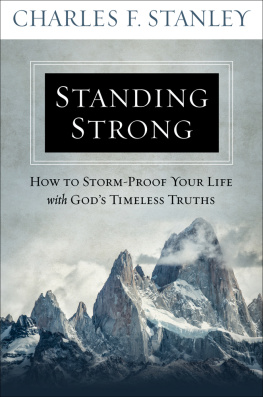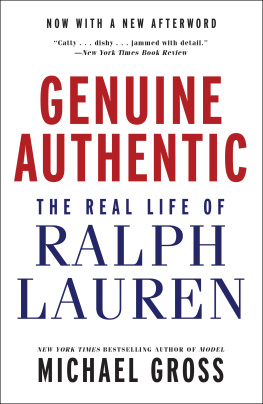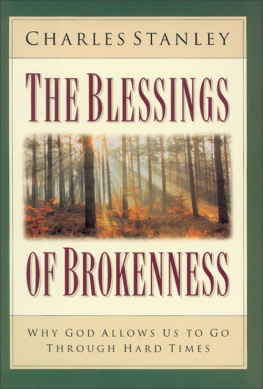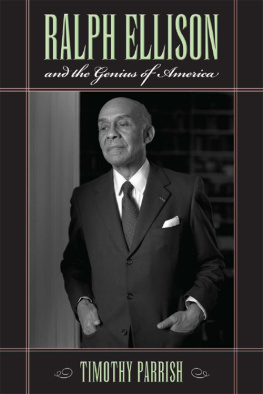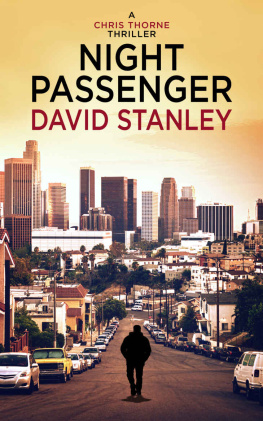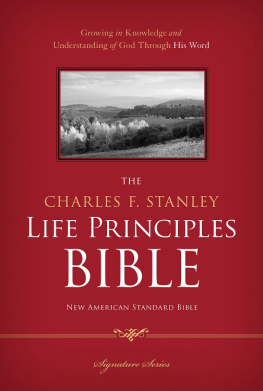ACKNOWLEDGMENTS
Dr. Ralph Stanley would like to thank: Eddie Dean, for wording out my life story and getting er done; all my friends and my family, especially Lisa, for her help on the project; and to the Good Lord, without whom none of this would have been possible.
Eddie Dean would like to thank: Dr. Ralph Stanley, for the music and the memories; Patrick Mulligan and the team at Gotham Books for their hard work and dedication; Gary Reid, foremost expert on the Stanley Brothers, for his invaluable research and assistance beyond the call of duty; my brother, Larry Dean, for his keen editing eye and love of the old-time music; Jimmi Stanley for the Dr. Pepper and good cheer; and all the Clinch Mountain Boys, for sharing their stories. Thanks also to Rebel Records; Bluegrass Unlimited; the Dickenson and Wise County Public Libraries, and the Virginia State Library in Richmond; Fred Campbell and the people of southwest Virginia, for their kindness and hospitality; and finally, to my wife, Maria Allende, and our children, Sophie and Pablo, for their love and support.
CHAPTER ONE
Deep Hollow
Mountain folks, mountain folks, everybody calls us mountain folks Whole lot of work for a little bit of pay, everybody calls us mountain folks
MOUNTAIN FOLKS, RALPH STANLEY
A lot of people like to talk about their ancestors.Theyll tell you how theyre descended from a line of Scottish kings and whatnot, and theyll brag on a Lord So-and-So who they say theyre related to. Maybe even got em a fancy coat of arms framed and hanging on the wall. Funny how you never hear nobody say they come from a gang of horse thieves that got run out of the old country.
I dont know when or why my people came here. Dont know why they decided to stay. All I know for sure is weve been in these mountains as long as anybody can remember. So I cant tell you much about who our ancestors were. Never been much interested in my family line. I dont know why. Never did try to search the family tree; my dad and my mother didnt either, as far as I know.
When I was coming up, people from around here didnt mess around in the family history.They were working too hard to fool with it, I reckon. For people in the mountains, it was just get up at daylight, go to bed at dark, and in between work like a mule.
My mothers father and my dads father, thats as far back as I can tell you about, and I dont know much about them either because they died when I was young. My dads daddy was named Nathan Stanley and he came from a little hollow called Bold Camp near the town of Pound, Virginia, across the county line about fifteen miles away in Wise. His wife was named Stacie.
About the only thing I remember about my grandpa Nathan was, he was the first person who made me really cry. I was four years old and my dad had a brand-new 1931 A-Model Ford, one of the first automobiles ever seen in our neighborhood. And we drove to Bold Camp to pick up Pa-Paw Stanley so he could stay with us for a few days.When we made it back home, he got out of the car and he slammed the door on my thumb. Mashed it real bad and turned it blue and I got real mad at him. He couldnt help what he done; it was an accident, probably the first car hed ever rode in, but it still hurt like the dickens.
My mothers side, the Smiths, was a prominent family in the area. Her father, Noah Smith, was a farmer and he owned the land on Smith Ridge where I later grew up. He and his wife, Louisa, raised a family of twelve and every one of them children played music. My mothers uncle John was one of the biggest preachers around here at that time. He was a minister and moderator and an elder at the McClure Primitive Baptist Church on the Open Fork of McClure River, one of the oldest churches in Dickenson County.
Uncle John was known all around these parts as Elder John Smith, or just Preacher John. Lord, he was one to ramble, sort of like a country doctor making house calls. Back then, you were born at home, you got married at home, and you died at home. Uncle John rode horseback all over the Clinch Mountain country preaching funerals and officiating weddings and baptisms. I remember him baptizing my mother in the river when I was nine years old.
Where Uncle John really made his name was as a singer. He didnt sing ballads, though. He done what they called heart songs like You Hurt Me Lying, and hymns like Tarry with Me, O My Savior, and Amazing Grace, and a lot of Primitive Baptist gospel songs Ive recorded through the years. People who was around back then said I sound a lot like Uncle John did when he sang them old hymnsand hes the only person who Ive ever been told sounded anything like me.
Uncle John officiated the wedding of my mother and father, but you could say it was death brung them together, as much as anything else did. Lucy Rakes was a widow and Lee Stanley was a widower, both getting on in years and not wanting to be alone. My dads first wife died and I never did know what of, because my dad never did say and I never did ask.
My mother had it rough in the way of love. When she was a young woman, still in her teens, she had a sweetheart named Gibson. He was from the little railroad town of Coeburn down the mountain from Smith Ridge, a good workingman, and they were both stuck on each other and were engaged to get married.Then he got killed in the mines, some sort of accident, and he got crushed by the falling rocks was the way I heard it. It wasnt until almost ten years later when she finally got married, to a fellow named Watson Rakes.Two years later, he died from a tumor in his head. So shed already lost two men she loved, and that was awful hard for her, coming to grief both times.
Seven more years went by, with my mother raising her daughter, Ruby, by herself, and she was thirty-eight years old when she wed my dad, Lee. When they got married in 1924, they brought seven children to the deal. Lee had three boys and three girls and Lucy had Ruby. That made three half brothers and four half sisters for me and Carter, the only full brother I had. They were a lot older than we were, so we didnt really grow up with them after the early years. Out of all my half siblings, none of them played music, so we didnt hear too much picking around the home, except some old-time clawhammer banjo my mom did. But she had mostly put her banjo aside to raise the family. I reckon maybe that was why Carter and I come along, to bring some music back into the house.
I was borned on February 25, 1927, on what they called Big Spraddle Creek, about three miles down the mountain from the old home place on Smith Ridge. The nearest post office was Stratton and the nearest town was McClure, a lumber camp that sprung up down by the river. Big Spraddle was one of them dark little hollows tucked back in them steep mountains, hard to find even when youre looking for it. Dont let the name fool you. Big Spraddle was just a little creek running by our little house, nothing youd ever see on any map or postcard. Not much at all there besides us, really, just three or four neighbors houses down the way.
We lived at the very end of the hollow, backed right on the creek.You could hear the creek water right outside the bedroom window. Running waters got a good sound, and it was a real comfort to hear it, especially when it rained and the creek got up; it would put you off to sleep real gentle and peaceful-like.
My mother had bought the place after her first husband died, and when she married my dad, they moved in there together. It was a little four-room, clapboard job, tin roof and stone chimney, no better or worse than a thousand other mountain cabins youd find at the time. My dad built an extra room on the back after I came along, and thats where me and Carter slept.There were cracks in the walls, and I remember waking up in the wintertime and thered be snow that blowed in overnight on top of the quilt.


